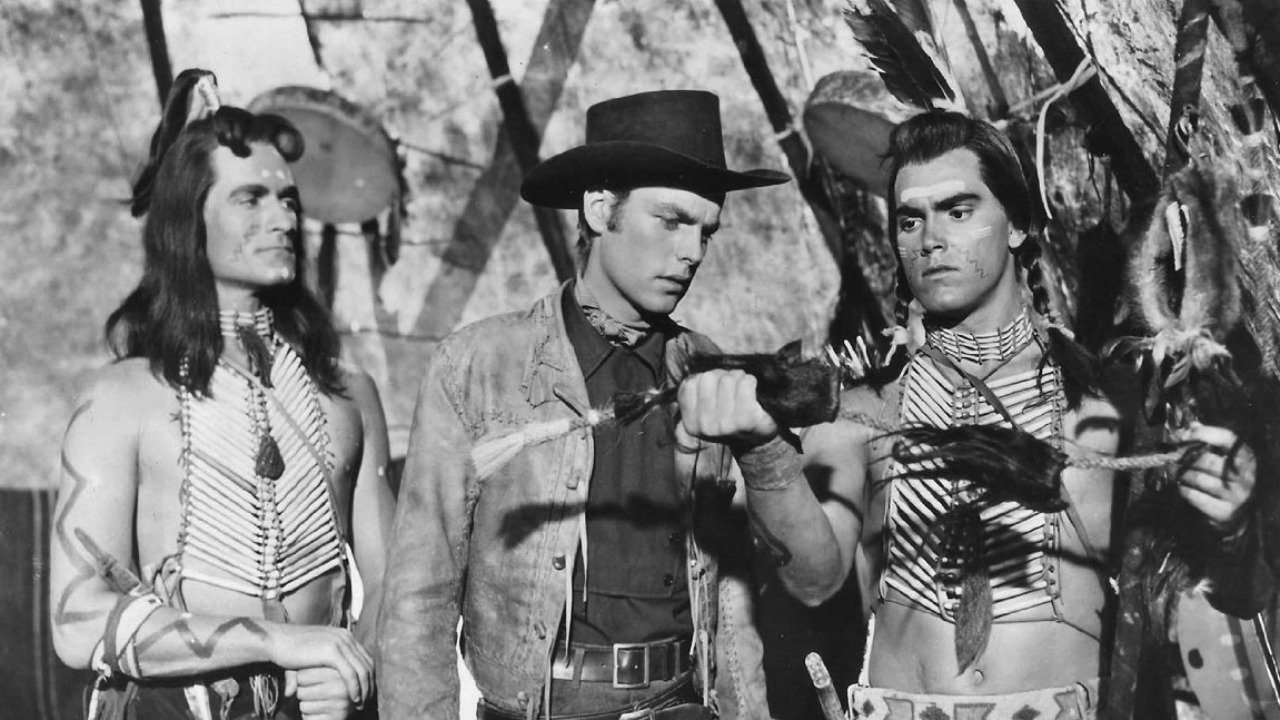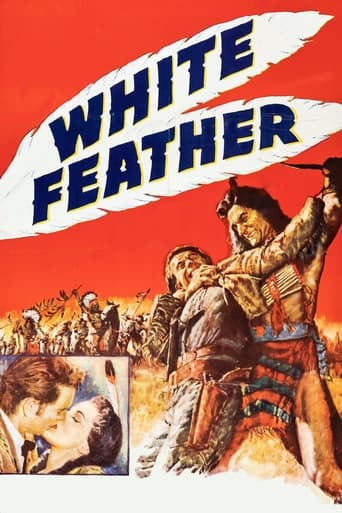



It's not great by any means, but it's a pretty good movie that didn't leave me filled with regret for investing time in it.
View MoreFor having a relatively low budget, the film's style and overall art direction are immensely impressive.
View MoreThis film is so real. It treats its characters with so much care and sensitivity.
View MoreThe acting is good, and the firecracker script has some excellent ideas.
View MoreIt's 1877 and gold has been discovered in Wyoming. The problem is that the Sioux, Crow, Arapaho, Blackfoot and Cheyenne inhabit this prime piece of land. Naturally, where there is gold there are those who are willing to risk their lives to get their hands on it. And whenever a person has gold there are whiskey peddlers, prostitutes, and gamblers who want to acquire it from those who have it. Yielding to considerable pressure, the United States decides to relocate the Indian tribes off of this land. After extensive negotiations all of the tribes agree to move south. Except for the Cheyenee. They are still considering whether or not to defend their land to the death. Into this volatile mix rides a young surveyor named "Josh Tanner" (Robert Wagner) who has been hired by businessmen to map out a new town for settlers. This leads him into direct contact with both the United States Army and the Cheyenne. Filmed in color this type of movie was a staple for audiences during the 50's. However, unlike many westerns made before it this film tries to depict the Native American view as well. There is plenty of action and everything flows pretty smoothly for the most part. One thing I didn't care for was the way Josh Tanner knew what the Cheyenne were thinking practically before they did. I could understand that if he had been a trapper or an Indian scout perhaps. But for someone fresh out of St. Louis it just didn't seem plausible. I also didn't care for the ending which I thought was a bit too hokey. But fans of western movies will probably like it. All thing's considered I suppose it was okay and I give it an average rating.
View MoreThis movie is one of those weird "remake" movies they used to do ala "Rio Bravo"/"El Dorado", or "Support Your Local Sheriff/Support Your Local Gunfighter". In this case, "White Feather" is a loose remake of 1950's "Broken Arrow". Delmer Daves, who directed BA, wrote this screenplay and Debra Paget reprises her role as the most European looking Indian maiden of all time.Here's what I liked:This movie had a big budget and it shows in the recreation of the Indian villages. I have never seen such large representations of tribal villages. They are almost small cities. Unfortunately, they also seem phony and sterile.For once a Western leading man is having romantic relationships with women his own age!Positive Indian point of view theme is OK.That's it for positives.Hard to know where to start for negatives:As mentioned, a blatant remake of "Broken Arrow".Robert Wagner gives one of the worst leading man performances I've seen in a Western. And that hair style. Looks like he just walked off the set of "Jailhouse Rock". I finally understand why they had to use old guys like Wayne, Stewart, Randolph Scott, Gary Cooper etc. for leading men in the '50's. None of the young guys could act!!There's no heavy. This drains almost all the dramatic tension out of the story.All the other acting jobs are terrible. I didn't buy Jeffery Hunter for a second as an Indian warrior. It was hard to buy any of the Indians because they were all played by obviously Causcasian actors.Very little attempt at comic relief.Fundamental relationships of friendship between Little Dog and Josh and especially Appearing Day and Josh seemed awkward and implausible.Not one decent supporting acting job to salvage this mess.
View MoreThis is one of a number of 1950s Westerns which attempted to redress the balance by painting a fairly sympathetic view of the American Indian; even so, to spice up proceedings, we get a couple of rebels (second lead Jeffrey Hunter among them) opposing the impending peace treaty offered by the white man. Incidentally, though inspired by a factual incident, the film's plot line basically mingles elements from two contemporary examples of the genre BROKEN ARROW (1950; whose director, Delmer Daves, contributed to the script of this one) and ARROWHEAD (1953). With this in mind, the film doesn't really bring anything new to the table but, made with consummate Hollywood professionalism, the result is undeniably entertaining nonetheless.Casting is adequate, too: apart from the afore-mentioned Hunter (though not exactly convincing as a redskin), we get Robert Wagner as an all-too-young Government agent hero who mediates between the two parties, Debra Paget (in a virtual reprise of her BROKEN ARROW role and who eventually defies her people by eloping with Wagner), John Lund as the experienced Cavalry officer in charge, Eduard Franz as Hunter's dignified chieftain father, Hugh O'Brian (as with Peter Graves in the same director's BENEATH THE 12-MILE REEF [1953], a viewing of which preceded this one, he's the heroine's brash but unloved intended), Virginia Leith as a more mature secondary love interest for Wagner, and Emile Meyer as her racist storekeeper father. By the way, I've just taped the first cinematic adaptation of Ira Levin's thrller A KISS BEFORE DYING (1956) off Cable TV which I noticed shares a remarkable number of cast and crew members with the title under review (not least its hunky stars)! Being a largely outdoor film and in order to supply the appropriate grandeur, Lucien Ballard's widescreen photography is rather frustratingly limited to long or medium shots which, when screened on a normal-sized TV set, unfortunately leads to a certain detachment on the viewer's part; by the way, in the accompanying poster gallery on the DVD, the fact that patrons would be watching a "Cinemascope" production was deemed a bigger draw than even the stars involved! The film culminates with an unusual sort of showdown as Hunter and O'Brian face an entire cavalry unit (apparently an Indian battle custom which explains the film's title) however, the duo's come-uppance sees the personal intervention of Franz, who's not pleased with their 'brave' gesture; this is then followed by a lengthy (and, I'd even say, unwarranted) scene in which Wagner meticulously prepares Hunter for burial.The Fox DVD includes quite a nice assortment of extras: these include a reproduction of the original pressbook (filled with amusingly irrelevant ballyhoo), a reasonably comprehensive photo gallery, and a number of trailers for the studio's other catalog entries in the genre (among them the desirable Victor Mature vehicle FURY AT FURNACE CREEK [1948] surprisingly narrated and carrying the personal endorsement of none other than Gregory Peck! and latterday black-and-white potboiler CONVICT STAGE [1965], which I'd never heard of myself and can't fathom why it was even deemed worthy of a DVD release).
View MoreIn 1877 Wyoming, a government worker helps the United States Calvary in their quest to move the Cheyenne Indian tribe from the north-end of the state to the south; the Indian Chief--concerned about being on the losing end of an impending battle--agrees, but two young warriors oppose the move. Dusty western with a passive, sensitive side. The performances are variable, with Robert Wagner looking constipated (as usual), but Jeffrey Hunter doing a surprisingly forceful job as mercurial Little Dog (Hunter's scene amiably tossing knives with Wagner has a spirit that the rest of the film lacks); elsewhere, Debra Paget plays a lovestruck squaw (she's the palest-skinned Cheyenne ever to grace the screen!) and John Lund is a block of wood as a Colonel. The events depicted are allegedly based on fact, though one guesses this tenuous screenplay by Delmer Daves (of all people) and Leo Townsend runs far smoother than actual history might suggest. The "white feather" is the Indian's challenge to the white man, but it seems to me the horses involved get a far rougher treatment than either. ** from ****
View More